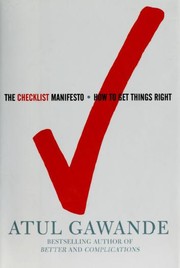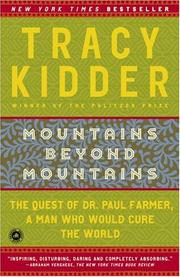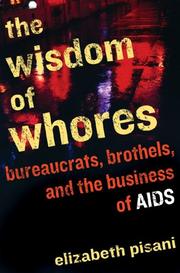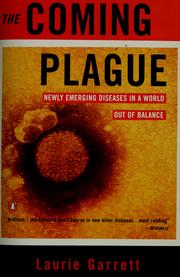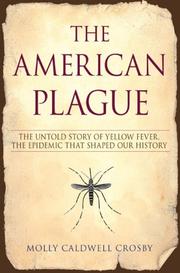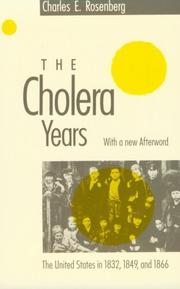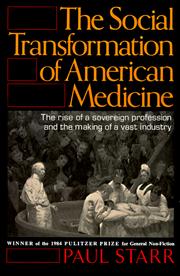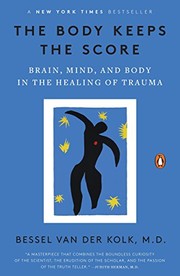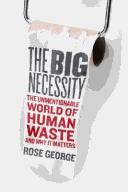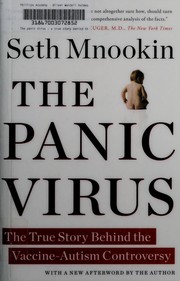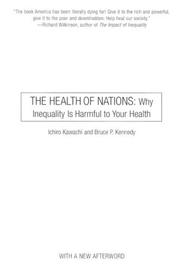Are you interested in learning more about public health and its impact on society? Look no further! In this article, we will explore the 20 best books about public health that offer valuable insights into the challenges and triumphs of the field. Whether you’re a student, healthcare professional, or simply curious about the topic, these books on public health cover a wide range of issues, from epidemiology and disease prevention to health policy and global health initiatives. Get ready to dive into compelling narratives, thought-provoking research, and inspiring accounts that shed light on the importance of public health in our world today.
Contents
- 1 20 Best Public Health Books
- 2 The Ghost Map
- 3 The Immortal Life of Henrietta Lacks
- 4 The Checklist Manifesto
- 5 The Emperor of All Maladies
- 6 Mountains Beyond Mountains
- 7 The Hot Zone
- 8 The Great Influenza
- 9 The Wisdom of Whores
- 10 The Coming Plague
- 11 The American Plague
- 12 The Cholera Years
- 13 The Health Gap
- 14 The Social Transformation of American Medicine
- 15 The Body Keeps the Score
- 16 The Big Necessity
- 17 The Birth of the Pill
- 18 The Panic Virus
- 19 The End of Epidemics
- 20 The Health of Nations
- 21 The Death of Expertise: The Campaign Against Established Knowledge and Why it Matters
- 22 Final Thoughts on Best Public Health Books
- 23
20 Best Public Health Books
The Ghost Map
by Steven Johnson
The Ghost Map by Steven Johnson is a captivating book about public health that delves into the deadly cholera outbreak in London during the 1850s. Johnson weaves together a gripping narrative that follows the lives of Dr. John Snow and Reverend Henry Whitehead as they race against time to uncover the source of the epidemic. Through meticulous research and compelling storytelling, the public health book takes readers on a journey through the streets of London, showcasing the devastating impact of the disease and the groundbreaking discoveries that ultimately led to the understanding of how cholera spreads.
With a keen focus on urban planning, sanitation, and the power of data analysis, The Ghost Map offers a thought-provoking exploration of how a single disease can transform a city and the pivotal role of individuals in shaping public health policies. Johnson’s masterful storytelling and insightful analysis make this book on public health a must-read for anyone interested in understanding the intersection of science, society, and public well-being.
The Immortal Life of Henrietta Lacks
by Rebecca Skloot
The Immortal Life of Henrietta Lacks by Rebecca Skloot is a captivating exploration of the intersection of science, ethics, and race. At its core, the book delves into the story of Henrietta Lacks, a poor African American woman whose cells were taken without her consent in the 1950s. These cells, known as HeLa cells, went on to become one of the most important tools in medicine, leading to breakthroughs in research for diseases like polio, cancer, and AIDS. Skloot skillfully weaves together the history of Lacks’ cells with the personal story of her family, who were largely unaware of their mother’s immortal contribution to science.
Through this thought-provoking narrative, Skloot raises crucial questions about medical ethics, informed consent, and the impact of scientific advancement on individuals and their families. The book sheds light on the complex and often overlooked issues surrounding healthcare disparities and the intersection of race and medicine. A must-read for anyone interested in the intersection of science and society, this book about public health offers a compelling and poignant exploration of an important and often overlooked aspect of medical history.
The Checklist Manifesto
by Atul Gawande
The Checklist Manifesto by Atul Gawande is a thought-provoking book on public health that challenges the assumption that the most complex problems require the most complex solutions. Gawande, a renowned surgeon, argues that in an increasingly complex and fast-paced world, the humble checklist can be a powerful tool in preventing errors and improving outcomes in a variety of fields, including healthcare, aviation, and finance.
Gawande shares compelling stories and research to illustrate how the use of checklists can save lives and streamline processes. He demonstrates how simple, well-designed checklists can help professionals manage the unexpected, reduce risk, and enhance performance. The book is a fascinating exploration of the psychology of human fallibility and the potential for systematic improvement in an imperfect world.
Whether you’re a healthcare professional, a business leader, or simply interested in the dynamics of decision-making and problem-solving, this engaging and insightful book about public health will change the way you think about complexity and effectiveness.
The Emperor of All Maladies
by Siddhartha Mukherjee
The Emperor of All Maladies is a captivating book about the history and impact of cancer on society. Written by Siddhartha Mukherjee, the book provides a comprehensive overview of the disease, from its earliest documented cases to the most recent breakthroughs in treatment and research. Mukherjee’s narrative style and in-depth exploration of the subject make the book a compelling read for anyone interested in medical history, oncology, or the human experience of battling cancer.
Through his exploration of the disease, Mukherjee delves into the social, political, and scientific aspects of cancer, shedding light on its profound impact on individuals, families, and society as a whole. The book is an insightful and thought-provoking examination of a disease that has shaped the course of medical history and continues to be a pressing concern in the modern world. Whether you are a healthcare professional, a patient, or simply interested in the human experience, this book about public health offers a unique perspective on the complex and multifaceted nature of cancer.
Mountains Beyond Mountains
by Tracy Kidder
Mountains Beyond Mountains is a gripping nonfiction narrative by Tracy Kidder that delves into the extraordinary life and work of Dr. Paul Farmer. This book on public health follows Farmer’s relentless pursuit of providing quality healthcare to the most impoverished and underserved communities around the world. Kidder skillfully weaves together Farmer’s personal story with the challenges and triumphs of his mission to bring medical care to those in need.
As readers follow Farmer’s journey, they are immersed in the complexities of global health, social justice, and the ethical dilemmas of providing care in resource-limited settings. Kidder’s vivid storytelling and in-depth research make Mountains Beyond Mountains a compelling and thought-provoking book about public health that sheds light on the critical issues facing the field.
Through Farmer’s unwavering commitment and resilience, this public health book inspires and educates readers about the power of compassion, determination, and the impact of one individual’s efforts in transforming healthcare for the most vulnerable populations.
The Hot Zone
by Richard Preston
The Hot Zone by Richard Preston is a gripping non-fiction book that delves into the terrifying world of infectious diseases, making it a must-read for anyone interested in the field of public health. The book takes readers on a thrilling journey through the origins and outbreaks of deadly viruses such as Ebola and Marburg, providing a harrowing look at the devastating impact these diseases can have on both individuals and society as a whole.
Preston’s masterful storytelling and in-depth research create a vivid and compelling account of the efforts to contain and combat these lethal pathogens, offering a fascinating glimpse into the world of virology and epidemiology. The Hot Zone is a riveting exploration of the potential threats posed by emerging infectious diseases and the critical importance of preparedness and rapid response in the face of such outbreaks.
This book is a must-read for anyone with an interest in public health, epidemiology, or microbiology, as it provides a chilling yet informative look at the world of infectious diseases and the efforts to combat them.
The Great Influenza
by John M. Barry
The Great Influenza by John M. Barry is a compelling book about public health that explores the devastating 1918 flu pandemic. Barry delves into the history of medicine, the development of the field of epidemiology, and the global impact of the influenza outbreak. With meticulous research and engaging storytelling, the book provides a comprehensive and vivid account of the pandemic, detailing the scientific, political, and social implications of the crisis. Barry also offers valuable insights into the challenges faced by public health officials and the lessons that can be learned from this catastrophic event.
This public health book is a fascinating and timely read, particularly in the context of our current global health challenges. It sheds light on the complexities of infectious diseases and the critical role of public health measures in combating them. Barry’s narrative skillfully weaves together scientific explanations, historical context, and personal stories, making The Great Influenza an essential read for anyone interested in the history of medicine and the impact of pandemics on society.
The Wisdom of Whores
by Elizabeth Pisani
The Wisdom of Whores by Elizabeth Pisani is a captivating book on public health that delves into the world of HIV and AIDS prevention. With a background in epidemiology and years of fieldwork in the global fight against HIV, Pisani offers a unique perspective on the challenges and triumphs of public health efforts.
Through engaging storytelling and insightful analysis, Pisani takes readers on a journey through the complexities of sex work, drug use, and government policies that impact the spread of HIV. She challenges conventional wisdom and offers thought-provoking solutions to some of the most pressing public health issues of our time.
This book about public health is not just for experts in the field, but for anyone interested in understanding the intersection of politics, culture, and science in the fight against HIV. With a blend of humor, compassion, and hard-hitting facts, The Wisdom of Whores is a must-read for anyone passionate about global health and social justice.
The Coming Plague
by Laurie Garrett
The Coming Plague by Laurie Garrett is a compelling and eye-opening book on public health that explores the intricate and often terrifying world of infectious diseases. Garrett, a Pulitzer Prize-winning journalist, delves into the history and future of global epidemics, shedding light on the factors that contribute to the spread of deadly viruses and bacteria. With meticulous research and captivating storytelling, she takes readers on a journey through the devastating impact of diseases like Ebola, HIV/AIDS, and the flu, and offers insight into the societal, political, and environmental forces that shape the trajectory of these outbreaks. This book about public health is a wake-up call, urging us to confront the looming threat of emerging infectious diseases and the urgent need for collective action to prevent and manage future pandemics. Garrett’s masterful blend of science, politics, and human drama makes The Coming Plague a must-read for anyone interested in the intricate and often terrifying world of infectious diseases.
The American Plague
by Molly Caldwell Crosby
The American Plague by Molly Caldwell Crosby is a captivating book about public health that delves into the history of one of the most devastating epidemics in American history. The book tells the story of the yellow fever outbreak that struck the southern United States in the late 1800s, causing widespread panic and claiming thousands of lives.
Crosby’s meticulous research and compelling storytelling take readers on a journey through the efforts of brave individuals who risked their lives to understand and combat the disease. The book provides a fascinating look at the early days of public health and the challenges faced by scientists and medical professionals in the face of a deadly and mysterious illness.
Through vivid descriptions and a wealth of historical detail, The American Plague offers a gripping account of a public health crisis that forever changed the course of American history. This book about public health is a must-read for anyone interested in the intersection of science, medicine, and society.
The Cholera Years
by Charles E. Rosenberg
The Cholera Years, written by Charles E. Rosenberg, is a captivating book on public health that delves into the devastating cholera outbreaks in the United States during the 19th century. Rosenberg skillfully examines how these epidemics shaped and transformed American society, politics, and medical practices.
Through meticulous research and compelling storytelling, Rosenberg paints a vivid picture of the fear, confusion, and social upheaval that accompanied these outbreaks. He explores the responses of various cities and states, the emergence of public health policies, and the evolving understanding of infectious diseases.
This book about public health is not only a historical account of the cholera epidemics but also a thought-provoking analysis of the intersection between science, medicine, and society. Rosenberg’s exploration of how these crises influenced public health infrastructure and the development of epidemiology makes this public health book essential reading for anyone interested in the history of medicine and the impact of infectious diseases on communities.
The Health Gap
by Michael Marmot
The Health Gap by Michael Marmot is an eye-opening book on public health that explores the stark disparities in health outcomes across different social and economic strata. Marmot, a renowned epidemiologist, delves into the underlying causes of these inequalities, shedding light on the role of social determinants such as income, education, and living conditions in shaping health outcomes. Through compelling research and real-world examples, he makes a compelling case for the need to address these inequalities to improve the overall health of society.
With a focus on understanding the root causes of health disparities, Marmot’s book about public health challenges readers to rethink traditional approaches to healthcare and advocates for a more holistic, social justice-oriented approach to public health. Whether you’re a healthcare professional, a policymaker, or simply interested in the well-being of society, this public health book offers valuable insights that are sure to provoke thought and inspire action.
The Social Transformation of American Medicine
by Paul Starr
The Social Transformation of American Medicine, written by Paul Starr, is a seminal book about public health that provides a comprehensive overview of the evolution of the American healthcare system. Starr delves into the historical, economic, political, and social factors that have shaped the development of medicine in the United States. He explores the rise of professional medical organizations, the establishment of hospitals, the role of government in healthcare, and the influence of pharmaceutical companies.
Through meticulous research and insightful analysis, Starr demonstrates how medicine has evolved from a decentralized, individualized practice to a highly specialized, institutionalized industry. He also examines the impact of these changes on patient care, healthcare delivery, and the overall health of the population.
Starr’s book on public health is a must-read for anyone interested in understanding the complexities of the American healthcare system and the broader social implications of medical practice. It provides valuable insights into the challenges and opportunities facing healthcare today and offers critical perspectives on the future of public health.
The Body Keeps the Score
by Bessel van der Kolk
The Body Keeps the Score by Bessel van der Kolk is a groundbreaking book on public health that explores the profound impact of trauma on the body and mind. Drawing on decades of research and clinical practice, van der Kolk reveals how traumatic experiences can shape our physical and psychological well-being, leading to a range of health issues including chronic pain, addiction, and mental illness. Through compelling case studies and cutting-edge neuroscience, he demonstrates how trauma can disrupt the brain’s normal functioning and offers innovative therapies to help individuals heal from their past traumas.
This insightful public health book sheds light on the importance of understanding and addressing trauma in healthcare, education, and society as a whole. Van der Kolk’s empathetic and informative writing style makes The Body Keeps the Score an essential read for anyone interested in mental health, trauma, and the mind-body connection.
The Big Necessity
by Rose George
The Big Necessity by Rose George is a fascinating book about public health that delves into the world of human waste management. George takes readers on a journey to explore the global sanitation crisis, highlighting the importance of proper sanitation and the dire consequences of inadequate waste disposal. Through engaging storytelling and in-depth research, the author sheds light on how lack of access to clean toilets and sanitation facilities impacts public health, the environment, and social issues.
From the streets of London to the slums of India, George uncovers the challenges and innovations in the public health book of sanitation, offering a thought-provoking perspective on a topic often overlooked. The book not only explores the science and technology behind waste management, but also addresses the social and cultural aspects of sanitation, making it a compelling read for anyone interested in global health and environmental sustainability. The Big Necessity is an eye-opening and informative exploration of a critical aspect of public health that affects billions of people worldwide.
The Birth of the Pill
by Jonathan Eig
The Birth of the Pill by Jonathan Eig is a captivating exploration of the development of the birth control pill and its profound impact on society. Eig delves into the lives of four remarkable individuals – feminist Margaret Sanger, philanthropist Katherine McCormick, scientist Gregory Pincus, and gynecologist John Rock – who played pivotal roles in the creation of this revolutionary contraceptive. Through meticulous research and vivid storytelling, Eig chronicles the struggles, controversies, and breakthroughs that ultimately led to the pill’s approval by the FDA in 1960.
This meticulously researched and engagingly written book sheds light on the cultural, social, and political forces that shaped the pill’s journey from a controversial concept to a widely accepted form of contraception. The Birth of the Pill not only offers a fascinating insight into the history of reproductive rights, but also serves as a thought-provoking study of the intersection of science, gender, and society. It is a must-read for anyone interested in the history of reproductive health, women’s rights, and the impact of medical innovation on society.
The Panic Virus
by Seth Mnookin
The Panic Virus by Seth Mnookin is a captivating book on public health that explores the contentious debate surrounding the link between childhood vaccinations and autism. Mnookin delves into the history of vaccination, the rise of the anti-vaccine movement, and the impact of misinformation on public health. Through meticulous research and compelling storytelling, he unravels the origins of the fear and panic surrounding vaccines, shedding light on the consequences of vaccine refusal.
With a keen eye for detail and a deep understanding of the complexities involved, Mnookin provides a thought-provoking analysis of the societal, political, and scientific factors that have shaped the vaccine controversy. The Panic Virus offers a poignant and timely examination of the challenges facing public health in the age of information overload and widespread skepticism. It is a must-read for anyone interested in understanding the intersection of science, media, and public policy in the realm of public health.
The End of Epidemics
by Jonathan D. Quick
The End of Epidemics by Jonathan D. Quick is a thought-provoking book on public health that explores the growing threat of infectious diseases and offers a compelling vision for preventing future epidemics. Dr. Quick, a prominent public health expert, presents a comprehensive analysis of the factors contributing to the spread of infectious diseases, including urbanization, travel, and climate change. He argues that the key to preventing future epidemics lies in proactive measures such as strengthening healthcare systems, investing in disease surveillance, and promoting global cooperation. Drawing on his extensive experience in the field, Dr. Quick provides real-life examples and case studies to illustrate the potential impact of epidemic preparedness and response. The book offers a hopeful message, emphasizing that with the right strategies and political will, we have the power to end epidemics once and for all. Engaging and informative, The End of Epidemics is a must-read for anyone interested in the intersection of global health, policy, and security.
The Health of Nations
by Ichiro Kawachi
The Health of Nations by Ichiro Kawachi is a compelling book on public health that delves into the social determinants of health and their impact on the well-being of societies. Kawachi, a renowned public health expert, explores how factors such as income inequality, social cohesion, and access to healthcare can significantly influence the health outcomes of populations.
Through a combination of research findings and real-world examples, Kawachi paints a comprehensive picture of the complex interplay between social, economic, and political factors and their effects on public health. The book also offers insightful solutions and policy recommendations for addressing the underlying social determinants of health to improve the overall well-being of communities.
Whether you are a student, researcher, policymaker, or simply interested in understanding the broader implications of health beyond medical care, this book about public health is a must-read. Kawachi’s engaging writing style and thought-provoking insights make this public health book a valuable resource for anyone seeking a deeper understanding of the interconnectedness of social factors and health outcomes.
The Death of Expertise: The Campaign Against Established Knowledge and Why it Matters
by Tom Nichols
The Death of Expertise by Tom Nichols is a thought-provoking book on the erosion of trust in established knowledge and expertise. Nichols argues that in today’s society, there is a growing disdain for experts and a belief that everyone’s opinion is equally valid, regardless of their expertise or qualifications. This shift, he contends, has serious consequences for our society, particularly in the realms of public policy, education, and governance.
Nichols discusses the impact of the internet and social media on the dissemination of information, highlighting how these platforms have contributed to the spread of misinformation and the devaluation of expertise. He also delves into the implications of this trend for fields such as medicine, science, and technology, emphasizing the importance of trusting in the expertise of professionals in these areas.
Through engaging analysis and persuasive arguments, The Death of Expertise sheds light on the challenges facing our society and the vital importance of expertise in addressing complex issues. This book is a must-read for anyone interested in the intersection of knowledge, authority, and the public good.
Final Thoughts on Best Public Health Books
Public Health is a crucial and multifaceted field, and the 20 best books about public health listed above provide valuable insights into its various aspects. From epidemiology to healthcare policy, these books offer a comprehensive look at the challenges and opportunities in public health. Whether you’re a student, professional, or simply interested in the topic, these books are essential reading for anyone looking to deepen their understanding of public health and its impact on society.
Which book about Public Health is best?
The best book on Public Health can vary with personal preference, but three widely recommended titles are:
- The Ghost Map by Steven Johnson,
- The Immortal Life of Henrietta Lacks by Rebecca Skloot,
- The Checklist Manifesto by Atul Gawande.
Each offers valuable insights and could be a great starting point.
What are the best books to learn about Public Health?
For those looking to learn about Public Health, there is a wealth of literature that can provide a comprehensive understanding of the subject. Some of the most highly recommended books include:
- The Ghost Map by Steven Johnson,
- The Immortal Life of Henrietta Lacks by Rebecca Skloot,
- The Checklist Manifesto by Atul Gawande,
- The Emperor of All Maladies by Siddhartha Mukherjee,
- Mountains Beyond Mountains by Tracy Kidder,
- The Hot Zone by Richard Preston,
- The Great Influenza by John M. Barry,
- The Wisdom of Whores by Elizabeth Pisani,
- The Coming Plague by Laurie Garrett,
- The American Plague by Molly Caldwell Crosby
These books offer a range of perspectives on Public Health, covering various aspects and approaches to the subject.
What are the best books about Public Health?
The best books about Public Health are:
- The Ghost Map by Steven Johnson,
- The Immortal Life of Henrietta Lacks by Rebecca Skloot,
- The Cholera Years by Charles E. Rosenberg,
- The Health Gap by Michael Marmot,
- The Wisdom of Whores by Elizabeth Pisani,
- The Hot Zone by Richard Preston.
Each offers unique insights into the subject. While these books about Public Health are highly regarded, it’s important to note that any list of ‘best’ books is subjective and reflects a range of opinions.
What are the best Public Health books of all time?
Choosing the best Public Health books of all time can vary depending on who you ask, but five titles that are often celebrated include
- The Ghost Map by Steven Johnson,
- The Immortal Life of Henrietta Lacks by Rebecca Skloot,
- Mountains Beyond Mountains by Tracy Kidder,
- The Wisdom of Whores by Elizabeth Pisani,
- and The Cholera Years by Charles E. Rosenberg.
Each of these books has made a significant impact in the field of Public Health and continues to be influential today.



